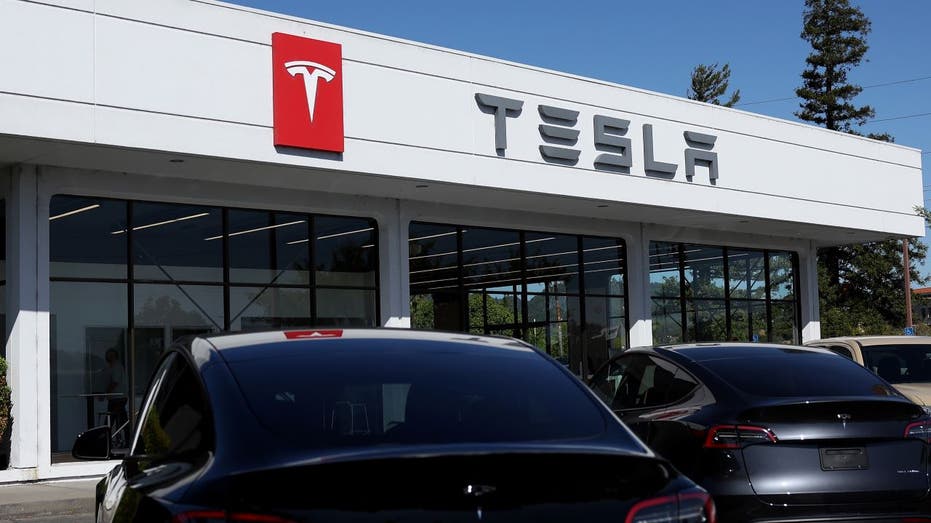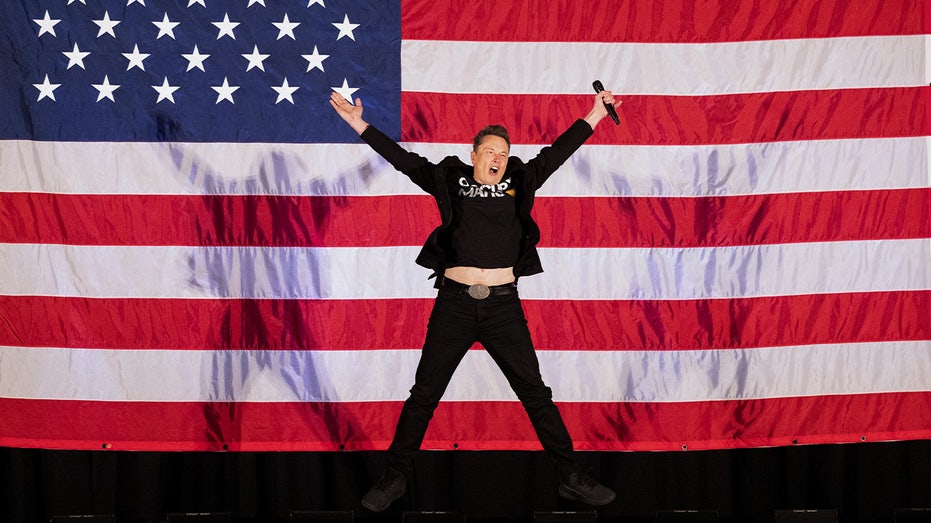Tesla CEO Elon Musk endorsed Trump’s bid to return to the White House and was a prominent financial backer of his campaign
The relationship between President-elect Trump and billionaire Elon Musk sent Tesla’s market value above the $1 trillion mark after a rally on Friday.
Musk, who is the CEO of Tesla, endorsed Trump’s bid to return to the White House and was a prominent financial backer of his campaign.
Reuters reported on Friday that the electric automobile maker’s shares rose to $321.22, or up 8.2%, putting the company’s valuation above the $1 trillion mark for the first time in over two years.
Over the past week, the stock rose 29%, adding over $230 billion in market capitalization.
 “Tesla and CEO Elon Musk are perhaps the biggest winners from the election result, and we believe Trump’s victory will help expedite regulatory approval of the company’s autonomous driving technology,” Garrett Nelson, senior equity analyst at CFRA Research, said.
“Tesla and CEO Elon Musk are perhaps the biggest winners from the election result, and we believe Trump’s victory will help expedite regulatory approval of the company’s autonomous driving technology,” Garrett Nelson, senior equity analyst at CFRA Research, said.
Trump has been critical of incentives and subsidies for EVs, but has commended Musk’s work with Tesla and praised him as a “super genius” during his victory speech early Wednesday morning.
Musk could push for regulations that favor his development of autonomous vehicles, while also getting the National Highway Traffic Safety Administration (NHTSA) to delay enforcement of Tesla’s current driver-assistance systems, a source familiar with the matter told the wire service.

He reportedly ditched plans to build an economy car priced under $30,000 so he could focus on self-driving technology. However, regulatory and development hurdles have delayed the technologies for commercial use.
Last month, the NHTSA said it was investigating 2.4 million Tesla vehicles with Full Self-Driving (FSD) software after four collisions were reported, including one fatal crash.
The auto safety regulator opened the preliminary evaluation after receiving four reports of crashes in which Tesla’s FSD software was engaged at times when there was reduced roadway visibility, such as sun glare, fog or airborne dust.
“If Musk can convince Trump to establish federal autonomous vehicle rules, we think that’s a good thing for the auto industry because we think firms want one set of rules rather than each state making their own,” said David Whiston, equity strategist at Morningstar.

Tesla’s FSD technology has been in development for years and eventually aims to reach a high level of automation capability, where the vehicle can do most driving tasks without human intervention. However, it has faced legal scrutiny stemming from at least two fatal accidents, including an incident in April when a Model S in FSD mode hit and killed a motorcyclist in the Seattle area.
Tesla explains on its website that FSD and its Autopilot feature are intended to be used by an attentive driver who can intervene and take control as needed.
Wall Street anticipates the incoming Trump administration will cut taxes and pursue a deregulatory agenda similar to the former president’s first term in office.
Musk may play a role in the incoming Trump administration, as the two have discussed his participation in a government efficiency push aimed at reducing wasteful federal spending.